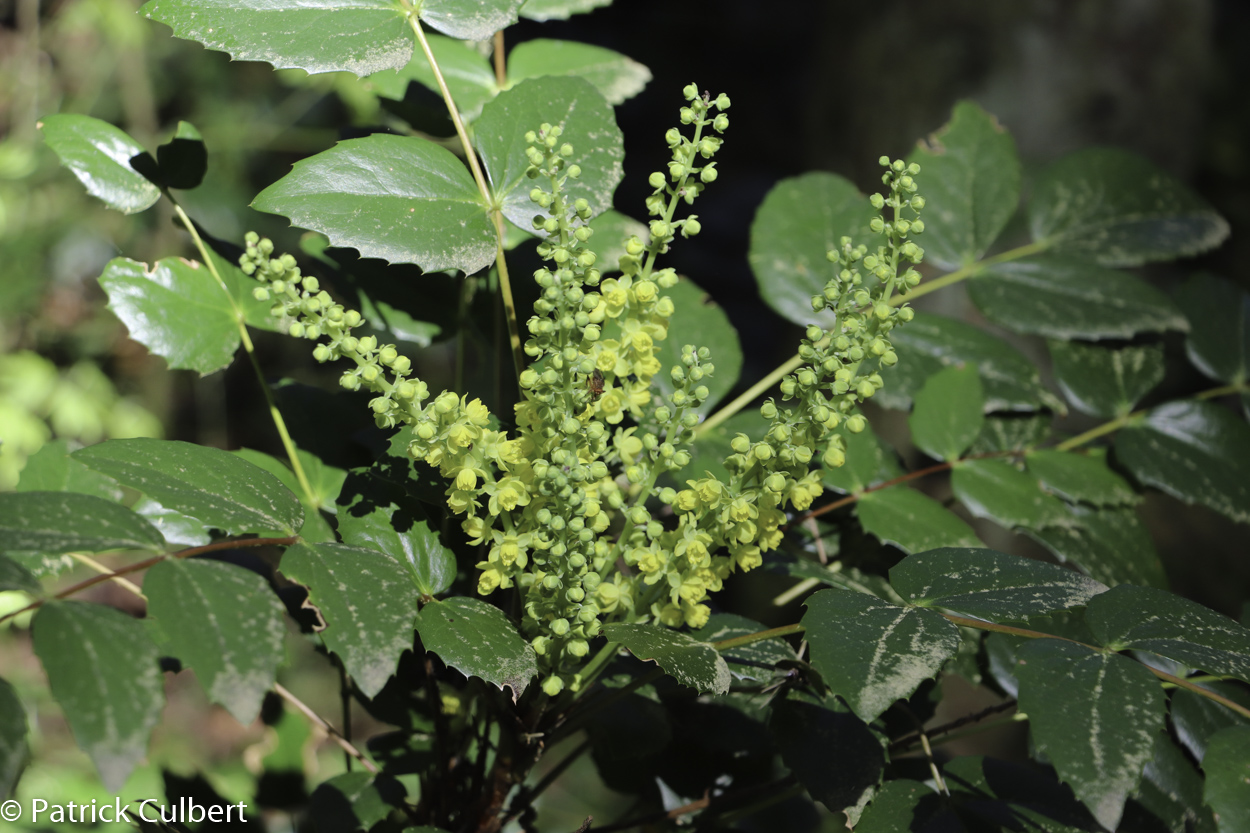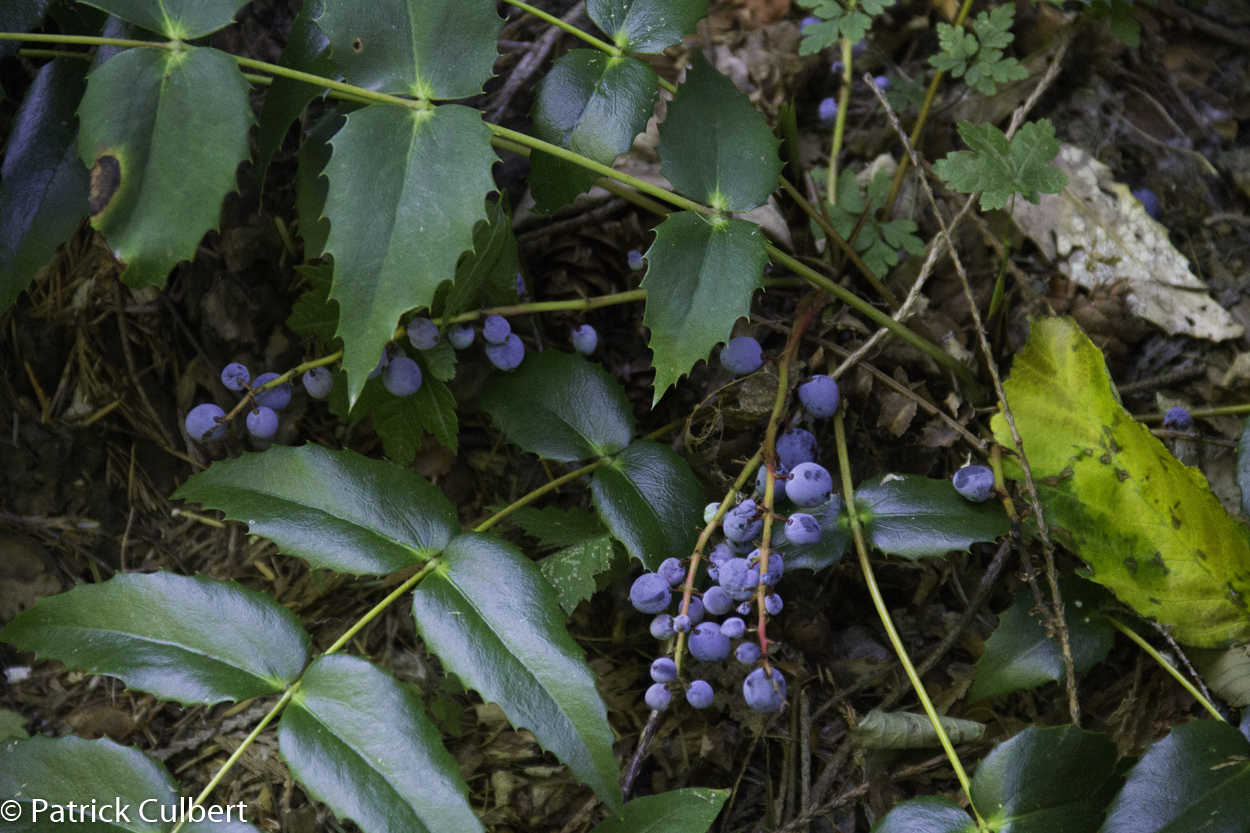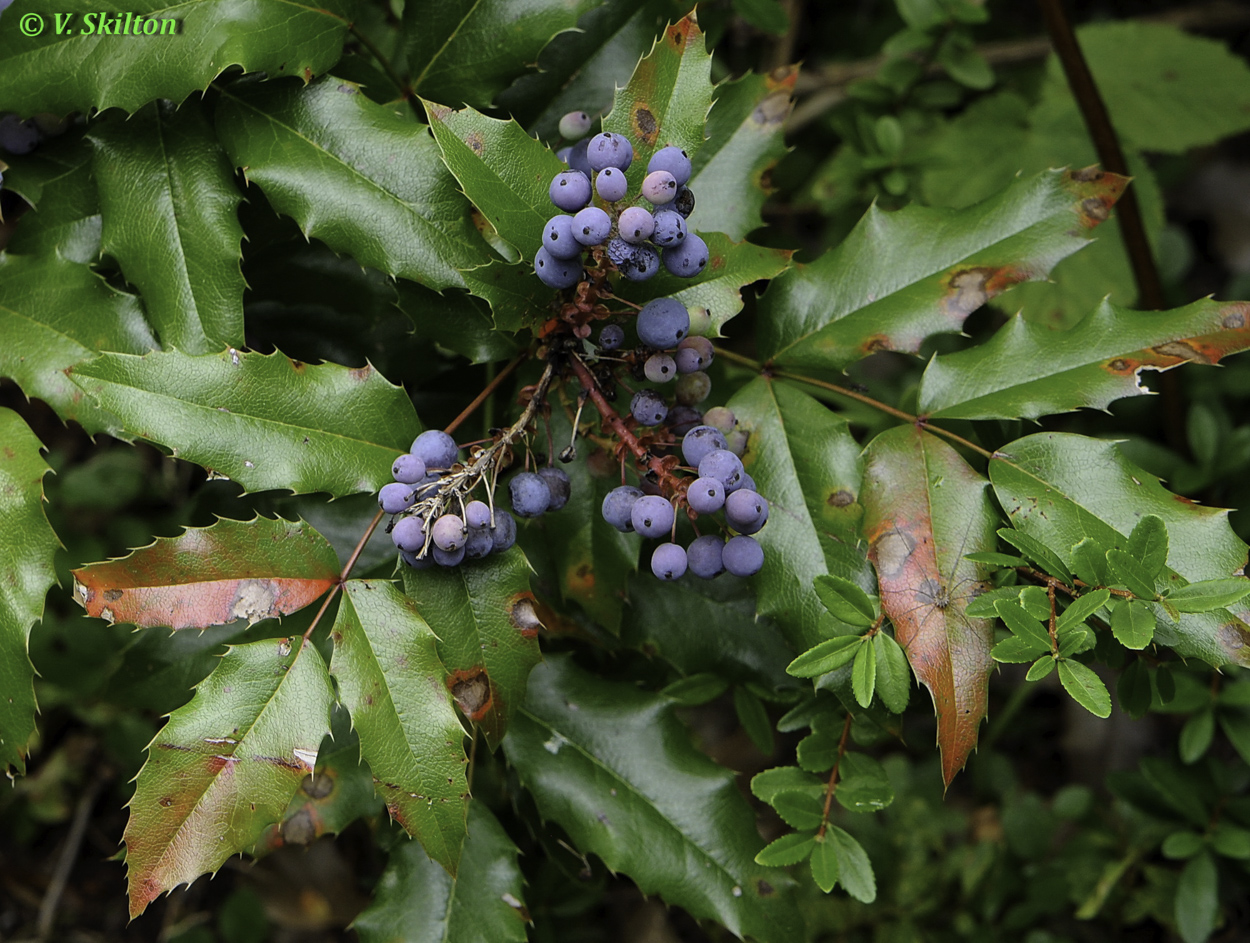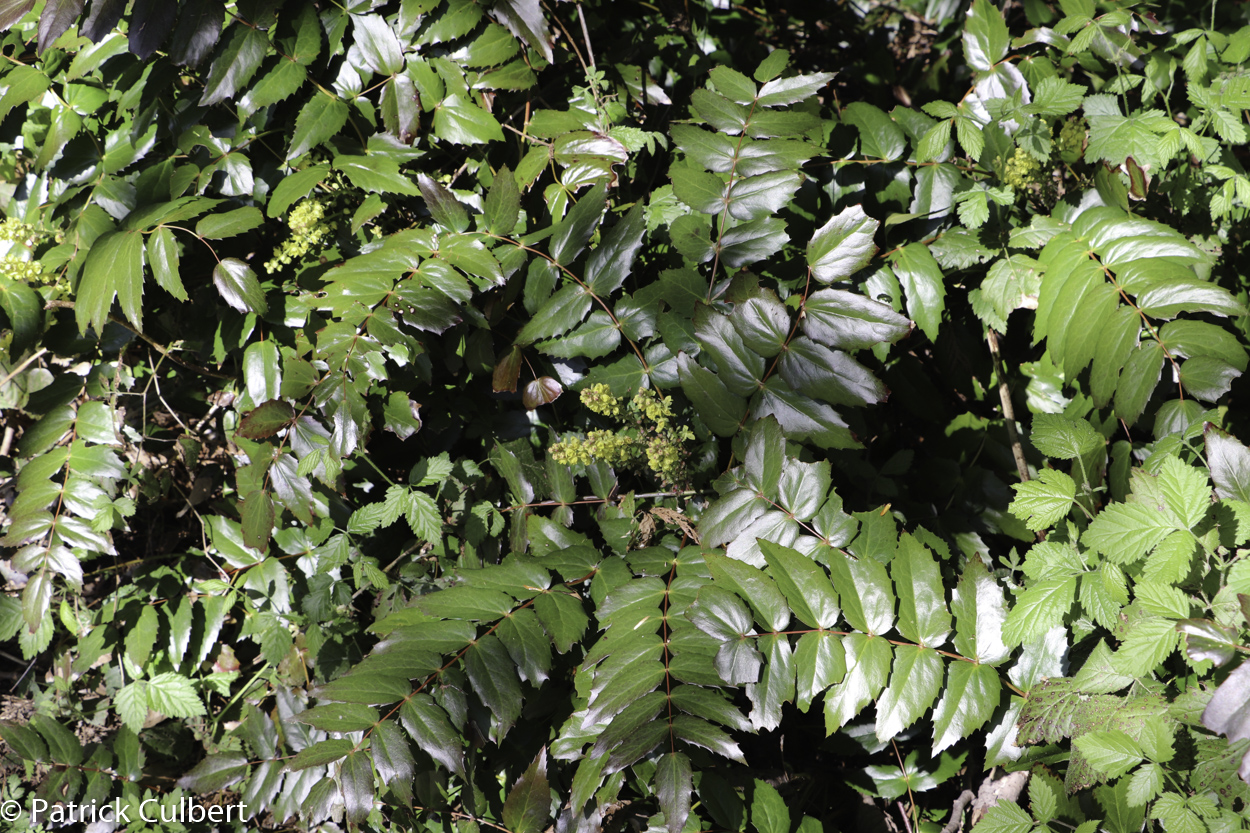Mahonia nervosa – dull Oregon-grape
Common Name
dull Oregon-grape
Alternate Common Names
- dwarf Oregon-grape;
- Cascade barberry;
- Cascade Oregon-grape
Family
Berberidaceae
Scientific Name
Mahonia nervosa
Alternate Scientific Name
- Berberis nervosa
Soil Moisture Regime (SMR)
- Dry (D)
- Moderately Dry (MD)
- Medium (M)
Soil Nutrient Regime (SNR)
- Medium (M)
Video link
Hitchcock, C. Leo, and Arthur Cronquist. Flora of the Pacific Northwest: An Illustrated Manual © 1973. Reprinted with permission of the University of Washington Press.
General / Habitat
- Erect, evergreen shrub with stiff branches
- Up to 60 cm tall
- Low to middle elevations
- Often in 2nd-growth Douglas fir forests
Key Identifying Characteristics
- Leaves: Long, alternate, pinnately-compound leaves with 9-19 leaflets. Leaflets are leathery and have spiny teeth, resembling English holly
- Flowers: Bright yellow in erect clusters
- Fruit: Elongated clusters of blue berries with whitish bloom (dusty-looking coating), 1 cm across, edible
Lookalikes
- tall Oregon grape (Mahonia aquifolium)
- has 5-9 leaflets with central vein
External References
Sources
Douglas, G.W. et al (Editors). 1998-2002. Illustrated Flora of British Columbia, Volumes 1 to 8. B.C. Min. Environ., Lands and Parks, and B.C. Min. For., Victoria, B.C.
Pojar, J. and A. MacKinnon. 2014. Plants of Coastal British Columbia Including Washington, Oregon & Alaska. B.C. Ministry of Forestry and Lone Pine Publishing. Vancouver, B.C.






